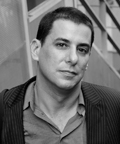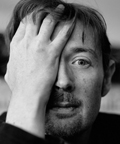Blog Archives
Stories from every angle
So, another Melbourne Writers Festival winds to a close. It’s been that curious mixture of exhausting and energising, with heroes met and made.
Every festival organiser hopes for that magical combination of guests, which can elevate a decent hour’s chat into a wonderful interweaving of minds and ideas. My favourite panels saw this happen, particularly How Russia Changed My Life, featuring the charming Elif Batuman, intrepid memoirist Maria Tumarkin and the irrepressible historian Sheila Fitzpatrick; and From Woolf to Wolf, in which Sophie Cunningham, Monica Dux and Emily Maguire discussed Virginia Woolf, Naomi Wolf and Germaine Greer.
The festival hosted some international stars, including Joss Whedon and Norman Doidge, but often it’s the writers whose work  I’m less familiar with whose stories really affect and delight me. On Sunday, at Magazine, Jake Adelstein, whose book Tokyo Vice tells of how he faced intimidation from the yakuza, read from a deleted chapter of his book – a comic tale of trailing an escaped monkey around Tokyo’s Nishi-Azabu area and being outdone in journalistic prowess by a nine-year-old boy. But only the day before, Adelstein movingly told the packed audience at Feddish about the real and dangerous cost of opposing the yakuza.
I’m less familiar with whose stories really affect and delight me. On Sunday, at Magazine, Jake Adelstein, whose book Tokyo Vice tells of how he faced intimidation from the yakuza, read from a deleted chapter of his book – a comic tale of trailing an escaped monkey around Tokyo’s Nishi-Azabu area and being outdone in journalistic prowess by a nine-year-old boy. But only the day before, Adelstein movingly told the packed audience at Feddish about the real and dangerous cost of opposing the yakuza.
 I loved the new venue, Feddish, where the Morning Fix sessions opened each festival day with a free smorgasbord of authors. But traditional venues continued to shine, including the Toff, which saw DBC Pierre settle back in a giant storytelling chair and artists including Clare Bowditch and Hannie Rayson re-enact Fleetwood Mac’s Rumours.
I loved the new venue, Feddish, where the Morning Fix sessions opened each festival day with a free smorgasbord of authors. But traditional venues continued to shine, including the Toff, which saw DBC Pierre settle back in a giant storytelling chair and artists including Clare Bowditch and Hannie Rayson re-enact Fleetwood Mac’s Rumours.
The parties, of course, were very good. The official opening party set the tone for a fun ten days, with the speeches including a tale of festival love and lust; and the celebration of Overland‘s 200th issue was attended by well-wishers and friends galore. A 25th birthday can never go past without at least a couple of good bashes, and at MWF’s 25th, Readings Books’ Mark Rubbo dropped by, as did Les Murray.
As a participant in the festival this year, too, I experienced many surprising and wonderful moments. During the Schools Program, I spoke with fantastic authors Gabrielle Wang, Kate Forsyth and Alice Pung; and inspiring youth leaders Chris Varney and Adam Smith. It’s so amazing to see how enthusiastic young festival-goers are about reading, books and ideas, and I have no doubt that we’ll see some of them back as guests in the future. During Kill Your Darlings‘ residency at Magazine, it was pretty wild to hear Robyn Archer sing every musical reference in her book Detritus – her live fifteen-minute snippet reel needed to be seen to be believed.
Congratulations to the fantastic festival staff and volunteers for a magnificent 2010 festival. I wish you all a good week’s sleep.
How Russia changed their lives
 I have this terrible habit of becoming interested in too many things, and ending up with massive lists to follow up on – Italian cinema, Australian authors, HBO TV series. One of these things is Russian literature. I’ve done a bit of Chekhov, I’m making my way through some Nabokov, I’ve done a little Tolstoy, a little Dostoyevsky and a little Gogol. Then I read Elif Batuman’s The Possessed (you’ll find my blurb in the Australian edition) and I was overcome with excitement for what I still have to discover.
I have this terrible habit of becoming interested in too many things, and ending up with massive lists to follow up on – Italian cinema, Australian authors, HBO TV series. One of these things is Russian literature. I’ve done a bit of Chekhov, I’m making my way through some Nabokov, I’ve done a little Tolstoy, a little Dostoyevsky and a little Gogol. Then I read Elif Batuman’s The Possessed (you’ll find my blurb in the Australian edition) and I was overcome with excitement for what I still have to discover.
Batuman as a child growing up in New Jersey was quite enchanted by the idea of Russia – a mysterious other place, a ‘wonderland’. But she was possessed by Russian literature quite by accident. The first novel she fell for was Tolstoy’s Anna Karenina – she says, ‘for the first time I had an idea of the novel that can compete with life’, that can run alongside a life. Batuman finds Russian literature richer in some ways than literature in the English or French canon – the way it can be ‘funny and sad at the same time’. Pushkin and Gogol are two of her favourites. Batuman decided to explore Russian literature as an academic, after discovering she wasn’t the kind of writer who imitated, re-enacted or re-lived the books she loved, but the kind who gets out into the world and immerses herself in ‘a metonymic, geographic way’ – like going to Tolstoy’s house, and meeting the crazy relatives of dead authors. Batuman found she enjoyed ‘going through, looking for clues to an absent person’. She added: ‘which is a lot of the time what life is like’.
Also on this panel, chaired by Judy Armstrong, were historian Sheila Fitzpatrick and author Maria Tumarkin. Tumarkin was born in the former Soviet Union, emigrated to Australia in 1989, and her book Otherland charts the journey she made back to Russia and the Ukraine with her teenage daughter. Tumarkin said she had avoided writing about Russia for years, and mentioned the fact that so many great writers only wrote insightful things about Russia after leaving. After living in Australia and inhabiting the language for a while, she then felt she could write about the place from which she came, and what was happening at the time she left. Her books are personal in style, because the journey into the past and into Russia is personal. Tumarkin didn’t want to write a journalistic book or straight historical enquiry.
 Sheila Fitzpatrick grew up in Melbourne in the ’40s and ’50s, when the Soviet Union ‘wasn’t generally loved’ by most people. Her father was a socialist though, and Fitzpatrick sees her interests stemming from Cold War tensions. She wrote her final year thesis at Melbourne University on Russian music – at a time when it was difficult to get research materials. Fitzpatrick told a few stories about traveling to Russia and to Uzbeckistan in the late ’60s. ‘Unlike other people who had to get out of the Soviet Union, I had to get in’, she said. She was interested in their ‘extraordinarily uncomfortable and inconvenient everyday’. As a foreigner she was marked. The British Embassy instructed her not to make friends as ‘they’re all KGB’. The Russians, too, always thought foreigners might be spies. Fitzpatrick even started to think ‘how do I know I’m not a spy?’ Fitzpatrick is Distinguished Service Professor in Modern Russian History at the University of Chicago and an annual Visiting Professor at the University of Sydney. She has written many books on the subject.
Sheila Fitzpatrick grew up in Melbourne in the ’40s and ’50s, when the Soviet Union ‘wasn’t generally loved’ by most people. Her father was a socialist though, and Fitzpatrick sees her interests stemming from Cold War tensions. She wrote her final year thesis at Melbourne University on Russian music – at a time when it was difficult to get research materials. Fitzpatrick told a few stories about traveling to Russia and to Uzbeckistan in the late ’60s. ‘Unlike other people who had to get out of the Soviet Union, I had to get in’, she said. She was interested in their ‘extraordinarily uncomfortable and inconvenient everyday’. As a foreigner she was marked. The British Embassy instructed her not to make friends as ‘they’re all KGB’. The Russians, too, always thought foreigners might be spies. Fitzpatrick even started to think ‘how do I know I’m not a spy?’ Fitzpatrick is Distinguished Service Professor in Modern Russian History at the University of Chicago and an annual Visiting Professor at the University of Sydney. She has written many books on the subject.
After the session I realised I forgot to bring my copy of The Possessed to get signed. Never mind, the Russian lady was present at the Federation Square Book Market and I picked up Dostoyevsky’s The Brothers Karamazov, which I’ve always wanted to read, and Elif Batuman kindly signed it ‘Fyodor (via Elif)’ for me…